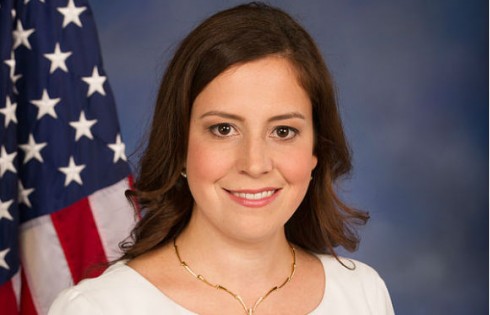
‘[T]ens of thousands of Americans are attending schools that don’t give them full credit for their AP work,’ report states
Universities across the U.S. are preventing students from earning a degree in less than four years by accepting fewer Advanced Placement and International Baccalaureate credits, a recent report by the Progressive Policy Institute found.
The report’s author and an education expert told The College Fix that financial motivations and skepticism toward changes to the AP and IB programs are to blame.
AP and IB credits are college-level academic credits earned in high school, which can allow students to skip entry-level college courses if accepted by their university.
In the report, PPI Board Member Paul Weinstein stated that universities have increased the minimum AP score needed for students to receive credit. In addition, many schools are denying course credit for AP work, restricting the number of subject areas that are eligible for course credit, and capping the total credits students can receive.
“Unfortunately, as this study confirms, tens of thousands of Americans are attending schools that don’t give them full credit for their AP work,” the report states.
It also states that ten schools do not offer any credit for AP and/or IB work, including Dartmouth College, Amherst College, and Brown University.
Weinstein told The College Fix via email that “schools are denying students who have worked hard and spent time and funds to earn a passing grade in a course that should count towards their college degree.”
“A 5 on the AP test or a 7 on the IB correlates to a grade of A,” Weinstein said, adding that many schools only accept top scores.
“In addition, schools are often less than forthcoming about what they will accept for credit and often mislead students (intentionally and unintentionally),” Weinstein said.
Further, some schools allow students to use AP and IB credits to waive out of certain introductory courses, yet these schools refuse to grant students course credit, Weinstein’s report states.
“If the AP and IB work is good enough to waive out of, then why is it not good enough to earn college credit?” Weinstein told The Fix.
MORE: Average cost of obtaining four-year degree in U.S. now tops $300,000: study
He attributed part of the issue to schools’ financial motivations. Colleges and universities enforce these restrictions partially to prevent lost revenue, as students who utilize AP and/or IB credits to bypass entry-level courses pay schools less tuition.
Another reason many colleges limit these credits is due to “legitimate concerns about the recent efforts by the College Board to recalibrate the AP scores in some subject areas,” Weinstein said.
Andrew Rotherham, co-founder of the education reform non-profit Bellwether, similarly told The Fix via email that “changes around AP that have made colleges more wary.”
The Fix also contacted The Thomas B. Fordham Institute, which provided a forthcoming review of the PPI report by its president emeritus, Chester Finn, who criticized universities for denying students the opportunity to get a head start on college.
However, he also pointed out that Weinstein limited his study to 150 elite institutions. Therefore, the report cannot be “extrapolated to American higher education as a whole.”
Finn stated that when he began college at Harvard University in 1962, “it was relatively easy” to earn a degree in less than four years “with the help of Advanced Placement scores that you submitted upon arrival.” While he was a “solid student” in high school, he didn’t score any fives on his AP exams.
At the time, Harvard upheld a policy that if students scored a three or higher on at least three AP exams going into college, they would hold a sophomore status.
Using AP credits offered students the opportunity to save one year’s tuition, to bypass freshman-level courses and to “launch” readied students more quickly into post-graduate life, he stated.
However, it also meant that colleges retain a smaller percentage of tuition money from a three-year student rather than a four-year student.
Universities “should be striving to curb their own costs while easing the financial burden on students and widening opportunities to earn degrees without loss of rigor,” Finn stated.
Weinstein, however, proposed broader reforms in his email to The Fix. He suggested the U.S. “reform the Department of Education” to “give it a clear mission to bring down the cost of college tuition (and support alternatives to college for certain jobs), and provide it with the tools to get the job done.”
The College Fix also reached out to Stanford University, Columbia University, Harvard University, Yale University, and Princeton University in the last two weeks for comment on their AP and IB credit policies. None responded.
MORE: Advanced Placement programs teach bad learning habits: book review
IMAGE: smolaw/Shutterstock
Like The College Fix on Facebook / Follow us on Twitter






Please join the conversation about our stories on Facebook, Twitter, Instagram, Reddit, MeWe, Rumble, Gab, Minds and Gettr.